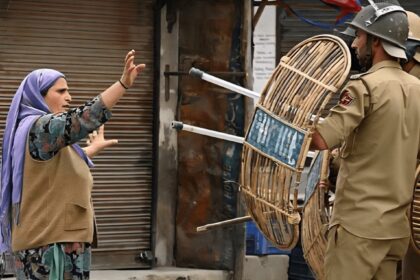Every day in Pakistan, from crowded school staff rooms in Karachi to bustling office cafeterias in Lahore, a familiar scene plays out. A woman opens her handbag and pulls out a stack of steel tiffins. The food is lovingly packed, with chapatis still warm, sabzi seasoned just right, and a pickle tucked in for flavour. To others, it may seem ordinary. To her, it is the result of an extra hour of work before the rest of the world has even stirred.
This lunchbox carries a set of expectations that are silent, repetitive, and deeply ingrained in gender. It doesn’t just carry lunch; it carries a load that, for the most part, remains unseen.
For countless women with jobs, early mornings precede the regular 9-to-5 workday. The breakfast table isn’t set by magic; it’s set by a mother who’s mastered the tricky crunch of breakfast-making and dish-cleaning. And this, too, is a performance: the daughter wanders in, half-dazed from just rolling out of bed. She’s installed on a stool so she can eat and so the woman can finish her final prep for stage one of the relentless workday, which has already been underway for hours. By the time the woman can even think about leaving for her job, she has likely done at least four kinds of unnoticed labour.
The perfect woman, even in today’s world, is expected to maintain both a prosperous job and an ideal domestic life. And if she does, she’ll have our admiration. If she doesn’t, well, she’s to blame. We praise her independence, but she’s still expected to bring the kind of service to her home that her mother did. We cheer her for climbing the ladder of success, and, at the same time, we sure do love to judge her for the lack of a 24/7 Mommy Service in her kitchen.
A person who prepares their lunch is often applauded for doing so.
You made this yourself? Wow, that’s impressive!
This is what someone might say to a man packing lunch. Of course, we all know that a lunch packed by a man isn’t any more deserving of praise than a lunch packed by a woman. Yet somehow, when it comes to packed lunches, a man is coasting on our approval, while a woman is just living a middle-class, heteronormative, domestic life, for which we bestow no awards.
And here’s the other truth. When a woman doesn’t pack a lunch, ordering food or skipping it altogether is not seen as efficient. It’s seen as carelessness, as a lapse in her role. She must nourish others to prove her worth, often forgetting to sustain herself.
The deeper issue here isn’t just the act of cooking. It’s the assumption behind it. Care, especially domestic care, is still seen as a woman’s default role. She is expected to wake up early, know everyone’s preferences, and carry the mental checklist of who needs soft rotis and who avoids chillies. The moment that care becomes visible, it is reframed as a virtue rather than a shared responsibility.
What we are truly lauding is subdued tiredness. Even among women who are quite fortunate, those with emotional or financial support who can offshore parts of their lives to others, the work of maintaining a family doesn’t vanish in a puff of sentimental smoke. For every woman who says she has help, there are at least two occasions when the help is busy. She’s caught in a conundrum, having a moment that demands a conference call—or some kind of mid-afternoon magic that knows how to stretch the hours.
Upon a microscopic look, a more extensive pattern appears to be emerging. It is not just working-class women but also domestic workers and carers of all kinds who prepare not just one but several meals before eating themselves. They rise before dawn, cook for others, commute, and then serve again. Their stories are seldom told, yet their hands feed entire households.
This is not really about men who don’t cook being criticised. It’s about questioning why we keep assuming that it’s someone else who will do the cooking. Why do we only notice domestic labour when someone is not doing it?
Once I heard someone say, ‘My wife is incredible. She makes lunch for the whole family and still manages to get to work on time.’ A man standing near me whispered, ‘And who makes hers?’ The silence that followed said more than any debate could.
Consider what would happen if we recognised care work as the legitimate labour that it is. For instance, instead of praising men for just “helping” with domestic tasks, we could acknowledge that they equally share in the responsibilities of maintaining a household. We could also, as a society, encourage boys and men not to view cooking as something only women do or as an exceptional talent, but rather as a necessary life skill for everyone. Finally, we could create a world where women don’t have to prove their worth by doing what society claims is a testament to their ability to balance and accomplish.
When you see a woman at work take out her tiffin, remember this. It might contain roti and sabzi, but it also includes the reason why she is still up at 2 a.m., finishing the task for which the next day’s meetings are a warm-up. It might hold mutton curry, but if it does, that woman did not slow down when her body needed more energy that day to get through the grind. Because worry is the only thing women seem to do, almost as if it’s the reason for their existence.
If we truly want equality to progress beyond being just a slogan, we need to start acknowledging all the invisible work that keeps our lives running smoothly, not just on International Women’s Day, nor just as a human resources topic in our workplaces, but in the everyday spaces where our lives unfold – in kitchens, classrooms, and during the pauses we take to eat between meals (what used to be called ‘lunch breaks’).
Recall that equality does not commence in conference rooms. It starts at the first meal of the day.
















